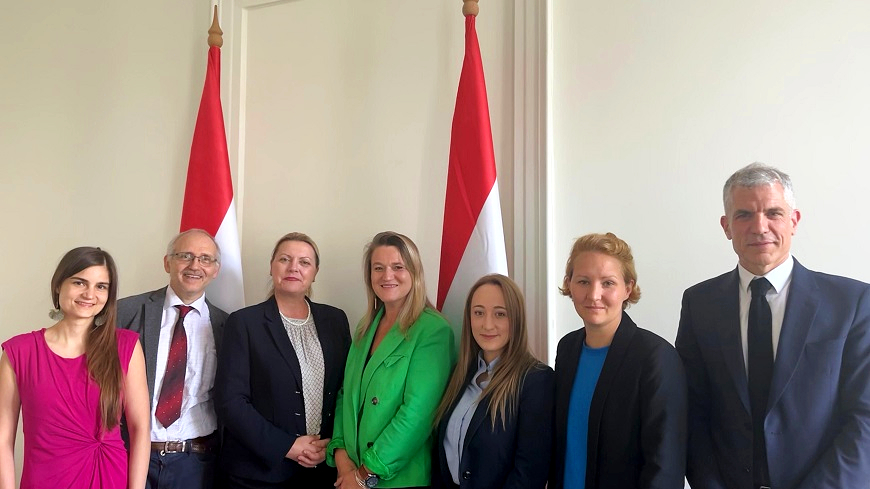On 29 to 31 May, the Department for the Execution of Judgments carried out a mission to Budapest, organised in close cooperation with the Government Agent’s Office and the Permanent Representation of Hungary to the Council of Europe. The aim of the visit was to discuss cases pending under the supervision of the Committee of Ministers and to raise awareness of the work, practice and procedures of the Committee of Ministers and the Department.
The delegation met with dr. Nóra Jakubovich, Deputy State Secretary in the Ministry of Justice, and the staff of the Government Agent’s Office to discuss the cases/groups of cases in respect of Hungary on the agenda of the Committee of Ministers at its Human Rights meetings in 2024 (see the Consolidated indicative work programme for 2024) as well as a number of other important general questions regarding the execution of judgments by the Hungarian authorities.
The delegation also held meetings with numerous experts of the National Judicial Office, the Prosecution Services (including the Hungarian HELP focal point), the Ministry of Interior, the Prison Service Headquarters, the National Police Headquarters, as well as the National Directorate-General for Aliens Policing to exchange on the implementation of the following cases, as well as possible avenues for future cooperation:
- Plesó concerning unlawful compulsory confinement in a psychiatric hospital;
- Kiss Menczel regarding the inability to examine absent witnesses in criminal proceedings;
- István Gábor Kovács group on poor conditions of detention and the lack of effective domestic remedies in this respect;
- X.Y. group on a number of issues related to pre-trial detention, in particular excessive length or insufficient reasoning;
- Gubacsi group on ill-treatment by law enforcement officers and the lack of effective investigations in this respect;
- Balázs group related to the ill-treatment of Roma applicants and the lack of effective investigations notably into the question of possible racial motives;
- Horváth and Kiss concerning discrimination of Roma children on account of their discriminatory placement in special schools, as well as the Szolcsán case concerning segregation of Roma children in education;
- Alhowais/Shahzad (No.2) concerning different violations during border control operations;
- Szurovecz on journalists’ access to refugee camps; and
- Sudita Keita on access to and delays in stateless determination procedures.
A separate meeting was held with different civil society organisations (including Amnesty International Hungary, Háttér Society, Hungarian Civil Liberties Union, Hungarian Helsinki Committee, and the Rosa Parks Foundation).




